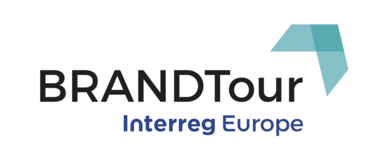On the 24th May, 2017 between 10.30 a.m. and 1.00 p.m. the tuscan stakeholders were invited to a meeting where BRANDTour lead partner Tuscany Region represented by Mr Romagnoli, Mr Mannelli and Ms Caldarola presented the project, its themes, its actions, and its expected results.
Stakeholders were introduced to the meeting’s agenda by Mr Raffaele Mannelli of the Tuscany Region. The following points were illustrated and discussed with the stakeholders group:
The Interreg Europe Programme - The programme was explained, with reference to the policy learning process and the expected changes in the policy instruments of the partners, through the exchange of Good Practices emerging from the territories
Project partners - The six partner regions and the peculiarities of their tourism markets / systems where briefly illustrated, together with the complementarity of the tourism development objectives of different (more or less mature) tourism destinations / regions.
Project objectives and policy themes - The overall and specific objectives of the project where discussed, that is, to develop better policy instruments that can help to:
1. enhance the visibility and market uptake of known and less known destinations;
2. valorise attractions through better marketing, branding and communication;
3. innovate the offer by clustering tourism SMEs and products;
4. increase synergies between tourism private and public stakeholders;
5. deliver more customised packages by diversifying the offer;
6. leverage local value chains and excellence to develop thematic and experienceoriented tourism.
Stakeholders expressed interest and appreciation for the above policy themes, particularly for themes 3 and 4 which have been already tackled in the past, but could be greatly improved through the policy experience exchange with other EU regions.
Policy instruments – the ROPs and other policy instruments of the partners where briefly illustrated to point out the strategic attempt to achieve a policy change (improvement) through the activities to exchange good practices, which will be developed through the project’s working plan of Phase 1 (2017-2019) and Phase 2 (2020-2021).
A focus on the strategic documents of the Tuscany Region to take into account for defining priorities and to work upon in the coming months was made by Ms Teresa Caldarola of the Tuscany Region.
In this context Mr Stefano Romagnoli, Director of the Tourism Development Department of the Tuscay Region stressed the need and usefulness of learning and exchanging with others useful lessons in development issues like defining more competitive tourism products and destination areas, particularly now when regional policies are being revised to better respond to the emerging market transformations. This will give rise to new support polciies / projects during Phase 2 when the monitoring of the concrete implementation of the Action Plans through a system of indicators will be made.
Stakeholder groups – the role of these groups was emphasized as concerns: dissemination and diffused learning, collection and tramsmission of good practices and know-how, surveying regional and territorial needs and experiences (both succesful or unsuccesful) emerging from the stakeholders contributions. A mix of business representatives, DMOs, local adminsitrations, research centers and university departments participated in the discussion, pointing out the will to commit to the project’s objectives right from its start. The possibility to involve stakeholders in interregional activities as representatives of outstanding good practices was evidenced by the Tuscany Region.
The workplan and events for the coming months (until end of 2017) was presented, and ways to interact and collaborate with the stakeholders working group where discussed together with the participants.
The next meeting of the stakeholders group is planned for September, as a preparation for the thematic workshop that will take place in the Balearic Islands in October.

